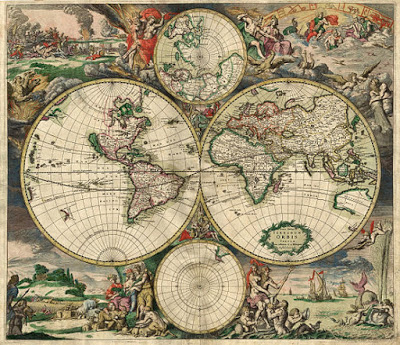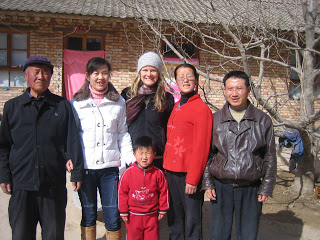What have I taken away from China?
I have taken some seedlings of customs and routines from China and attempted to transplant them into the soil of my life in America. Some have taken root and some have shriveled because the soil is just not conducive to that sort of seed.
I had grown accustomed to cooking Chinese food at every meal when I lived in China just because it was so inconvenient to make western food. Now that I don’t have easy access to Chinese ingredients, I have gone back to more predictable culinary exploits such as meatloaf and spaghetti.
I have carried back a respect for rest and family. I feel less guilty sitting down with a book and cup of tea for 20 minutes a day than I did before going to China. I also now value proximity to family more than I once did, not having had that for five years and seeing how much my Chinese friends valued their family relationships.
I am better with ambiguity than I once was. Being on buses that would stop for hours at a time with no explanation, having classes cancelled last minute for tree planting and being essentially illiterate my first three years in China, I grew accustomed to living with less information. I value this new-found flexibility and ability to find humor in the absurd.
What did I leave behind in China?
As it turned out, China was the conclusion to my Singleness Chapter in life, so I left behind long runs in the wilderness, staying up until 3 am binge-watching TV, two hour long quiet times with Jesus, having visitors stop by at the last minute and staying through dinner and traveling all over China during school holidays.
I left behind my pre-marriage, pre-children self that sometimes seems more confident, adventurous and faithful than I am now.
But what I mourn the most are the friends-become-family I left behind–the ones who became my sisters, brothers, mothers, fathers and grandparents because I was alone and needed family. In their great value for family, they pitied the foreigner and, like Jesus, invited me in (to share their home), gave me something to eat (homemade noodles and dumplings), something to drink (tea) and something to wear (appropriate long underwear). Even though most of them didn’t know Him, they were Jesus to me. They were His hands and feet. They were my family.
“…we must be allowed our anguish and our regrets.”
If I allow it, the anguish I feel about leaving these relationships can be debilitating and the regrets I have about not keeping in touch with them can overtake me. But, unlike Adah, I trust in a God with a grander story. He is not disappointed in me for not keeping in touch with friends 10,000 miles away, nor is He dependent on me to keep watering the seeds that were sown in the hearts of friends who did not yet know Christ. He allowed me a glimpse of what it will be like to worship with the nations, which is something I will carry with me until I see many of them again in eternity. And that can never be left behind.
If you have moved, what have you taken with you and what have you left behind?
Follow me on Twitter and Facebook
This post is day 21 of the series “Re-entry: Reflections on Reverse Culture Shock,” a challenge I have taken to write for 31 days. Check out my other posts in the series:
Day 1: Introduction
Day 2: Grieving
Day 3: No One Is Special
Day 4: Wasted Gifts
Day 5: I Never Expected…
Day 6: Identity: Through the Looking Glass
Day 7: Did I mishear God?
Day 8: When You Feel Like Shutting Down
Day 9: Caring for your Dorothy
Day 10: You’re Not the Only One Who’s Changed
Day 11: 12 Race Day Lessons for Serving Overseas
Day 12: Confessions of an Experience Junkie
Day 13: Longing for Home
Day 14: Readjusting: Same Tools, Different Work Space
Day 15: Book Review: The Art of Coming Home
Day 16: The Story of My “Call”
Day 17: Is Missions a “Higher Calling”?
Day 18: And Then I Fell in Love
Day 19: Is God Calling You Overseas?
Day 20: Life Is Not Seasonal
Day 21: What I Took and What I Left Behind
Day 22: Groundless, Weightless, Homeless
Day 23: When the Nations Come to You
Day 24: The Call to Displacement
Day 25: Scripture Anchors for Re-Entry
Day 26: In the Place of Your Exile
Day 27: Resources for Re-entry
Day 28: A Time for Everything: A Prayer of Leaving
Day 29: Journal: 8 Months After Re-Entry
Day 30: 12 Survival Tips for Re-Entry
Day 31: A Blessing
(Day 32: Writing is Narcissistic (And Four Other Reasons Not to Write)–a reflection on this Write 31 Days experience)
Photo: Linda Bailey [CC BY-SA 2.0 (http://creativecommons.org/licenses/by-sa/2.0)], via Wikimedia Commons











